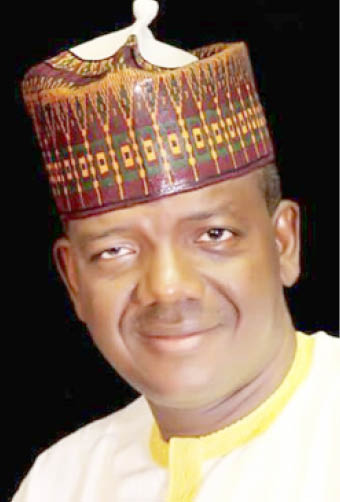Stakeholders welcome Fulfulde in Zamfara schools
Schools in Zamfara State will have Fulfulde (Fulani) Language added to their curriculum to enable them know Fulani culture. This implies that authorities will have to contend with new teachers, textbooks and teacher support materials required to handle the additional subject. Recently, during an event on the presentation of the Ruga Settlement, the Emir of […]

Governor Bello Muhammad Matawalle of Zamfara State
Schools in Zamfara State will have Fulfulde (Fulani) Language added to their curriculum to enable them know Fulani culture.
This implies that authorities will have to contend with new teachers, textbooks and teacher support materials required to handle the additional subject.
Recently, during an event on the presentation of the Ruga Settlement, the Emir of Mafara, Alhaji Muhammad Barmo, while speaking on behalf of the state’s council of chiefs, urged the state government to include Fulfulde Language in school curriculum.
Barmo noted that since the Hausa and Fulani communities were inseparable and Hausa Language is being taught in schools, Fulfulde should also be a subject of study.
Ruga is a rural settlement in which animal farmers, mostly Fulani herders, will be settled in an organized place with provision of necessary and adequate basic amenities such as schools, hospitals, road networks, veterinary clinics, markets and manufacturing entities that will process and add value to meat and animal products.
Thereafter, Governor Bello Muhammad Matawalle of the state directed the Ministry of Education to immediately commence work for the inclusion of Fulfulde in school curriculum in the state.
“This will boost the use of our local languages by our upcoming generations. Since we have promised to establish primary and secondary schools at the new Ruga settlements, we will ensure that the local language is not forgotten,” Matawalle said.
Stakeholders in the state have been speaking about the introduction of Fulfulde as a study subject.
Some of the Fulani herders, who spoke to our correspondent, said the introduction of Fulfulde into the curriculum will make it the third most widely taught language after English and Hausa and immensely boost literacy level, adding that nearly all Fulani pupils can speak and write in English language, but could hardly write in Fulfulde.
“We listen to news broadcasts and other programmes of different radio stations across the country. We believe these news bulletins are being read and written. How can someone write and read such words, if he hasn’t been taught in school. If we can communicate in writing in our mother tongue then we can impact positively on ourselves and our reading culture will definitely improve.
“The idea of introducing Fulfulde in the school curriculum in the state is a very sound one, and we are very grateful about it,” a herder, Ado Hussaini, said.
Another herder, Samaila Baderu, said he could write in Hausa but found it difficult to write in his first language, Fulfulde, because he didn’t study Fulfulde Language in school. You can see many publications in English and Hausa, especially in northern Nigeria, but never in Fulfulde because the language is not taught in schools.
“In our primary school days, I read books like ‘Ruwan Bagaja’, ‘Magana Jari Ce’, ‘Iliya Dan Mai Karfi’ and ‘Shehu Umar’ all written in Hausa Language but I have never come across one written in Fulfulde,” he noted.
However, to Usman Dan Ade, teaching language and literacy skills to Fulani children in their first language will only succeed if parents are ‘willing and ready’ to send their children to school.
He said the move will enable other pupils to learn about multitude of cultures, especially the Fulani culture and other people they interact with.
“If Fulfulde language teachers are brought to the schools and learners are not there, it doesn’t make sense. It is not only Fulani children that can develop interest to learn the language, other children too, will learn the Fulani culture,” he said.
A teacher in Government Secondary School, Shinkafi, said there is nothing wrong with the introduction of Fulfulde in schools as it will give room for job creation.
He said students find a personal connection with their learning and are happier when they are taught in their language.
“We have Arabic, Hausa and English language teachers in our schools. In the secondary school I graduated from, Igbo and Yoruba languages were taught and many students have learnt the languages.
“In northern Nigeria, right from the primary school, you learn how to read and write in Hausa language before any other language. That is why today, you can meet a person who can write and read in Hausa fluently but cannot write in English language.
“Most of the Hausa speakers who can write in English language very well can also write Hausa as well. The introduction of Fulfulde in schools can improve the native and non-native speakers’ ability to read and write,” he added.
Similarly, the Zamfara State Secretary of Miyetti Allah Kautal Hore, Alhaji Abdulsamad Gidado, said teaching Fulfulde language in schools will improve conventional spelling system.
“Fulfulde like any other language has its own orthography. That is an aspect of language study concerned with letters and their sequences in words and its aspects of correct spelling.
“I authored a book titled ‘Ka Koyi Fulatanci da Kan Ka’ and I wrote the book in collaboration with Professor Kabir Jabaka, Miyetti Allah Kautal Hore, Ta’alim Foundation and Fulbe Development Association of Nigeria (FULDAN) and I am still working on other publications in Fulfulde,” Gidado said.
However, officials of the Ministry of Education and the State Universal Basic Education Board who craved for anonymity because they were not authorized to speak on the matter said they have yet to send Fulfulde teachers to schools but that preparation on the governor’s directive is in top gear.
They said the language would be taught in both primary and secondary schools in addition to nomadic schools.
